#antediluvian library
Explore tagged Tumblr posts
Text
Sphinx's Hidden Truth: Was Edgar Cayce Right About Its Secret Halls?
On https://www.monkeyandelf.com/sphinxs-hidden-truth-was-edgar-cayce-right-about-its-secret-halls/
Sphinx's Hidden Truth: Was Edgar Cayce Right About Its Secret Halls?
For centuries, the Great Sphinx of Giza has silently guarded its secrets, its colossal gaze fixed on the endless horizon. Yet, beyond the official narrative of ancient Egyptian pharaohs and tomb builders, whispers persist—whispers of hidden chambers, lost knowledge, and a history far older than accepted timelines. At the heart of this enduring mystery lies the compelling prophecy of Edgar Cayce, often dubbed “the Sleeping Prophet,” whose visions detailed an astonishing network of underground halls under the Sphinx, housing the antediluvian library of a forgotten civilization. Was this psychic’s extraordinary claim mere fantasy, or did modern discoveries finally confirm his incredible foresight?
The very idea of secret halls under the Sphinx was once relegated to the realm of speculative fiction. In the late 19th and early 20th centuries, mediums and psychics often clashed with the rigid establishment of historians, Egyptologists, and archaeologists, asserting the existence of subterranean chambers that held more than just dust and rock. Their narratives were dismissed as unfounded speculation, lacking any verifiable scientific basis. However, the sands of time, quite literally, began to shift.
The initial crack in the wall of skepticism appeared with the excavation at the foot of the Sphinx’s right paw. This monumental undertaking revealed a previously hidden entrance to a mysterious dungeon, leading to a genuine hall with columns. While this discovery vindicated the mediums in part, it fell short of the grander claims. The mediums, and particularly Edgar Cayce, had pointed not merely to an empty chamber, but to a vast repository of lost wisdom – a hall of secret knowledge, a veritable library containing tablets inscribed with the forgotten history of previous, antediluvian civilizations. This audacious claim of an antediluvian library with technologies of forgotten civilizations remained elusive, leaving official Egyptologists to declare the mystery solved, and the “technical room” devoid of cultural value.
Edgar Cayce’s Vision: A Labyrinth of Ancient Knowledge
Edgar Cayce, however, envisioned something far more intricate and profound. According to his readings, there weren’t just one, but three distinct underground halls hidden beneath the silent guardian of the Giza plateau. The first of these, as he described, was indeed a Hall of Columns, but one imbued with an extraordinary layer of ancient technology: four secret mechanisms. Cayce posited that deciphering the riddles embedded within these mechanisms was the sole key to unlocking passage to the subsequent chamber.
The second hall, as revealed in his trance-like states, was nothing short of breathtaking. It was described as a giant bowl filled with water, its vaulted ceiling adorned with hundreds of twinkling stars and constellations. At its core, an immense, dark sarcophagus floated within the “sacred waters of an artificial lake.” But the mystery deepened. Within this surreal setting lay another hidden mechanism. Cayce claimed that at a precise moment, when the star map on the ceiling perfectly mirrored the celestial alignment of the real sky, an individual would need to plunge into the sacred waters and retrieve 10 relics from the lake’s depths.
These relics, once placed into special grooves meticulously carved into the walls, would then reveal the eleventh and final artifact. This ultimate relic was said to be contained within the sarcophagus, held in the hand of the mummy of the Orion priest. Upon its placement onto a pedestal rising from the waters, the door to the third and most sacred hall would finally open.
The Guardians of Wisdom: Thoth and the Golden Sphinxes
Entry into this third hall, according to Cayce, was fraught with extreme peril. It was said to be fiercely protected by majestic golden sphinxes, guardians of wisdom, and a formidable sculpture of Thoth, the ancient Egyptian deity of knowledge and writing. The individual brave enough to enter faced a life-or-death challenge: they had to correctly answer seven questions posed by the imposing sculpture of Thoth. A single error, Cayce warned, meant certain failure, as the golden sphinxes would only permit the passage of those who flawlessly navigated this test of intellect and spiritual purity. Even revered priests during the pharaohs’ reigns, often considered the bearers of wisdom and closest to the gods, were said to have struggled with this ultimate trial.
This severe test underscored the profound significance of the hall of secret knowledge that lay beyond. For Cayce’s followers, this was the ultimate prize: a sanctuary containing not only the technologies of forgotten civilizations but also an unparalleled collection of tablets describing the history of intelligent beings on Earth. Some of his most devoted proponents referred to this mythical chamber as nothing less than the “chronicle of life” itself. Despite persistent criticism from the academic community, Cayce remained steadfast in his assertion that these underground structures truly existed.
The Gatekeepers of Giza: Tourism vs. Truth
For decades, the pursuit of these legendary halls has been met with consistent resistance. Researchers and alternative historians have repeatedly sought permission from the Egyptian authorities to conduct excavations near the Great Sphinx, only to be met with resounding refusals in the vast majority of cases. The reasoning, while frustrating for those seeking answers, is understandable within the framework of Egypt’s economic priorities. Tourism is a lifeblood industry for the nation, and the prevailing narrative of classical Egyptology, meticulously curated and widely accepted, forms the very foundation of this lucrative business.
To disturb this lucrative idyll with potentially paradigm-shattering discoveries that defy traditional science is, from the authorities’ perspective, simply undesirable. Therefore, alternative researchers are often forbidden to excavate, reduced to merely observing the ancient structures under the guise of tourists, their curiosity unfulfilled.
Despite these efforts to control the narrative, some truths are simply too grand to remain entirely hidden. The excavation that revealed the door leading under the Sphinx, while initially downplayed, could not be completely concealed. Aerial photography and the sheer volume of tourists who witnessed the uncovering ensured that the secret was out. The Egyptian authorities and official Egyptologists deftly navigated this awkward situation by publicly declaring it a “technical room of no cultural and historical value.”
Modern Confirmation: Satellites and Subterranean Voids
Remarkably, this official dismissal didn’t deter everyone. While access to the excavated hall itself has been restricted to a select few – allegedly only two Egyptologists closely tied to the government and staunch supporters of the academic approach – independent research continued to probe the plateau’s hidden depths.
Not so long ago, two independent researchers utilized advanced satellite scanning technology to peer beneath the Giza plateau. Their findings were revolutionary. While their scans revealed immense rooms and structures under the pyramids, it was their discovery beneath the Sphinx that resonated most strongly with Cayce’s prophecies. Their data indicated the presence of significant voids that bore an uncanny resemblance in shape to man-made structures.
Specifically, these scans revealed one void approximately 120 square meters in area, another around 100 square meters, and a third, remarkably larger, at approximately 280 square meters. These dimensions and the nature of the voids strongly suggest artificial construction, lending astonishing credence to Cayce’s detailed descriptions of multiple underground halls.
Tragically, shortly after the publication of this groundbreaking discovery, these courageous researchers were declared persona non grata in Egypt, effectively banned from continuing their work in the country. This swift and decisive action by the authorities, combined with the consistent suppression of alternative theories, strongly suggests that something of immense significance lies beneath the Sphinx. It increasingly appears that Edgar Cayce, the visionary who peered beyond the veil of ordinary perception, was indeed right. The thought of such incredible knowledge and history being deliberately concealed from the public is, for many, a profound tragedy.
#Ancient Egypt#ancient secrets#antediluvian library#archaeological discoveries#controversial archaeology#Edgar Cayce#Egyptology#forbidden excavations#forgotten civilizations#Giza#Giza plateau#golden sphinxes#hidden knowledge#historical cover-up#lost history#mystery of the Sphinx#Orion priest#Prophecy#psychic readings#pyramid secrets#Sphinx#Thoth
0 notes
Note
I'm not tryna pen any raw as fuck quotes but I do want to read books that will make me feel better than the people who are, any recs?
level 1: read any anne carson poem. i think we all had a phase and got sick of her a few years ago but shes interesting because shes doing successfully what us tumblrinas usually fail to do, the perfect, concise, casual profundity rendered in plain language. i personally like her translation of the bacchae/the bakkhai but i know a lot of real classics people are annoyed by it lol im just a regular reader.
level 2: things me and retro and the dragonfucker have spammed each other with over the years
inanna's descent into the underworld
exaltation of inanna
the kalevala
the gods of pegana by lord dunsany
thunder perfect mind
im gonna be honest probably also your aleister crowleys and your madam blavatskys and shit. i like atlantis: the antediluvian world by ignatius donnelly. all those 19th century crackpots. you cant contain yrself to the 21st century man.
level 3: stop bugging me and get off of tumblr and find stuff around the internet and go to the real life library and read some shit thats been out of print since the clinton administration
158 notes
·
View notes
Photo

The Myth of Etana
The Myth of Etana is the story of the Sumerian antediluvian King of Kish who ascends to heaven on an eagle to request the Plant of Birth from the gods so that he might have a son. Etana is named as the first king of Kish in the Sumerian King List (composed c. 2100 BCE) which claims he reigned early in the 3rd millenium BCE. According to the Sumerian King List, Etana was known as "he who stabilized the lands" after the gods had created order out of chaos and established the concepts of kingship and government among humanity. Etana was, therefore, a well-known and highly respected figure and would have been chosen as the central character for precisely this reason. A central message of the myth is that one should trust in the gods and Etana, a great king, would have been chosen by the unknown author as the best exemplar in conveying that message.
Central Message
That the myth is very old is attested to by cylinder seals depicting Etana on the eagle's back which date from the reign of Sargon of Akkad (2334-2279 BCE). The British Museum has among its holdings a fragment of The Myth of Etana from King Assurbanipal's library at Ninevah, dating from the 7th century but, as G.S. Kirk points out:
The Neo-Assyrian version from Ashurbanipal's library happens to be the most surviving text, but where it overlaps with an Old Babylonian version of a thousand years earlier it corresponds with it very closely, sometimes word for word. A short Middle Assyrian fragment maintains the same accuracy. (25)
The story contains many motifs seen in myths of every culture: a great city created by the gods, a search for a worthy ruler, talking animals, broken oaths, divine intervention and a quest which brings the hero to the land of the gods (this one involving an eagle of mythic proportions). The myth may have been intended, as suggested by R. McRoberts, to convey a political message regarding kingship:
When this story is placed in the context of the First Dynasty of Kish, and its exceptional rule of twenty three consecutive kings, it can be seen as more than a tale of fantasy. Earlier dynasties in the King Lists show only a few kings ruling in succession. It is possible that the success of the First Dynasty of Kish could be owed in part to a new tradition of passing the monarchy on to a male heir of the previous king. The myth of Etana served as a colorful reminder that it was the king's duty to go to any lengths, or heights as the case may be, to produce that heir. (40)
While McRoberts' observation is certainly valid, the duty of the king was not only to his people but to the gods who had not only given him life but placed him in his position. According to Sumerian belief (and Mesopotamian belief in general), the gods had created humanity as co-workers to maintain order and keep the forces of chaos in check. The king was responsible to both the gods and his subjects to make sure the gods' will was followed. He could not perform this task if he had no faith in the gods himself and so the myth, in addition to its many other themes, would have emphasized Etana's faith in the gods even when it seems his prayers have not been answered.
Continue reading...
64 notes
·
View notes
Text
the librarians s1e2 watch through:
okay to be fair to cassie, a lot of people would do a lot to survive, but also "bring magic back to the world to help everyone" does sound good (without adding the whole "we just have to kill people to do it & we’ll control it" etc). i mean, she’s only just learnt magic is real, she doesn’t know if the library are the good guys yet. can’t be a traitor if you weren’t loyal to them in the first place.
is charlene gonna be okay? does that mean she’s dead? :(((
"when are we" calm down dr who
i love how much ezekiel has thought about what he’d do if he were trapped in the past, same dude same
scully baird really isn’t getting the whole "magical wound from excalibur" thing huh??
you’re getting blood on the books, mate
aw they took ezekiel’s stolen goods off him :(
cassie that is not what enochian is. don’t you know anything about alleged antediluvian languages received from angels by 16th century occultists? smh 🙄 (/joking)
hes defeating magic with electromagnets
if the sword can save her then why can’t it save him?? surelyyyy
yeah! called it!
his pet dog sword is whimpering :((( gotta put him down :(((
lmao they were so wrapped up in the evil magic people that they forgot about the cops
they said charlene’s okay!!!
bob newhart seems to be leaving but i kinda assumed that from ep 1 and the fact he’s so famous
"they’re not qualified" eve my love you got here like yesterday
and the adventures continue!
38 notes
·
View notes
Note
for the Sabbat OCs of your choice: 29, 35, 46, and 48? :3
tysm!!!
dividers by @/marquisedegramont




🎨 - Crownedinmarigolds [Ida, Judy, Luther] 🎨 - belthegore [Sir Percival]

Judith "Moody Judy" Margolis: Brujah, Black Hand Remover, Pack Ductus.
Ida Obertus: Tzimisce, Pack Priest, Former Revenant.
Sir Percival: Ventrue Antitribu. Templar. [Black Hand Recruit in New Orleans by Night]
Luther: Lasombra. Caine's silliest little guy.

29.) Do they frequently change locations or do they have a fixed location where they live?
Both! Their communal haven, maintained by two Obertus Revenants whilst the Pack is otherwise occupied with the Dark Father's work, is located in Montreal. It's a unparalleled repository for knowledge - forgotten and mundane. Not that they're advertising that, mind you. When the entire pack is on the move - be it as backup for Judy's Black Hand scheming, or should the Beckoning ever prove too much for Ida to hold off - they typically set up 2 - 3 havens. A dingier one for Judy to maintain the appearance of her Mask - Mina Graham, Anarch, itinerant scholar from Out of Town - and other havens as needed for Ida, Percy, Luther, and the one Revenant they keep with them at all times.


Nestled away in a quiet corner of the manor's expansive libraries lay an alter handcrafted and carved from basalt; an exquisite bas relief, inlaid with gold as it were, depicts a family drinking deeply from goblets. Three men and one woman glut themselves on the bacchanalian feast - thirteen empty chairs wreathing them. Atop the dedicatary lay a simplistic statue of the Dark Father, his head cast downwards: askance from the heavens. At his feet lay offerings from the denizens of the home - the preserved skull of a Tremere (fangs intact), a vial of Ravnos blood, a seemingly nondescript rock (taken from Zillah's place of torpid suspension), several framed fragments Book of Nod - penned delicately atop parchment made of skin, and several (smaller) tributes left by the attending Revenants of the household who - by blood, culture, and history - also claim descendance from Caine. Swaddling the entire thing were bundles upon bundles of meticulously maintained flowers; some were grown in the manor's garden, others still imported directly from the cradle of civilization itself. Crossbred to produce a subtle reminder: venerate what was, appreciate what is, and stride brazenly toward what could be.
35.) How old is your OC up until their death?
Luther: Died at 24 years old. [1784]
Ida: Died at 32 years old. [1884]
Percival: Died at 42 years old. [1942]
Judy: Died at 27 years old. [1952]
46.) What are their ambition(s) if any? Rather generically, loosen the grip of the Antediluvians and their unwitting pawns. When building the Pack from scratch, Margo handpicked each of them for their dedication and worth to the cause. They each contribute in their own way
Ida's eidetic memory, vast library, and personal research into supernatural hematology is invaluable.
Luther is a dedicated Noddist [hence him having the Mark of Caine, a byproduct of a long-forgotten ritae, on his forehead.] who also has an eidetic memory and personal experience with throwing metaphorical rocks at Setites.
Percy is sickeningly earnest in everything he does - making him excellent for outreach. Martial support, too.
On top of her capital E extensive research into the Anarch Revolt/Convention of Thorns, personal experience and research into the modern-night Anarch Movement, as well as tidbits on how the Camarilla functions - Margo has the support of the Black Hand.
48.) Detail things about your OC you spent a lot of time on!
Oh god, I'm honestly not too sure... 🤔... I spend so much time thinking about them that it all just kind of blends together, lmao. Thank you for asking, though!!!!

3 notes
·
View notes
Text



more from Rev. James O'Leary's Bible History with Maps, 1873
found in the archives of the US Library of Congress
Illustrations & timeline breakdown of the book of Genesis, following the Fall of Man and leading up to the Flood. ANTEDILUVIAN
#antediluvian#GENESIS#book of genesis#fall of man#religious texts#theology#bitches lived to be 900#could never be me#christianity#catholiscism#prehistory#creation myth#historical texts
2 notes
·
View notes
Text
Archibald Anderson, an able artist, and an acknowledged authority at all artistic assemblies after adventuring abroad all about Australia and America, and acquiring an admirable album artistically arranged, according as an accomplished artist accounted apt and appropriate, and admired amazingly among all artists as artistic and amusing, again, alleging as actuation an assiduous and absorbing activity, and an ambition all athirst after artistic accomplishments, and aiming at advantageous achievements, arranged another adventure across Asia, and accordingly appointing an accommodating and agreeable acquaintance, an affable Anglo-American, as agent (active agents accurately advised and amptly authorised always affording advantageous assistance, arranging affairs and adjusting articles, and anticipating and arresting awkward and adverse annoyances, and almost always alleviating anxiety and allaying anger and aggravation), after absent-mindedly and abstractedly, although apparently attentively, approving and adopting all arrangements as appropriate, and as auguring an agreeable adventure abroad, and after amiably answering all admiring acquaintances' affectionate adieus, abandoned an attractive abode, and attired as adventurers abroad always are (an attire apparently about as antiquated as any ancient and antediluvian age anytime adopted, and as affrighting and absurd as any art anytime achieved), and armed abundantly—apprehending attacks abroad—against any audacious assailants and aggressive assassins, Archibald advanced along, astonishingly active and agile, and approached an ancient alehouse, an appledealer's abode, an appledealer advertising as an amateur and aspiring artist, anxiously awaiting (as advertisements announced) all artist's and artist's agents arrangements anent adventuring abroad, and affording all advantageous assistance and appropriate aid; and again, advertisements also announced as an available acquisition, "an article aptly accommodating adventuring artists' apparatus and appliances, and all accustomed accessories;" and as Archibald arrived and asked about advantageous assistance and an article aptly-accommodating (as advertised) "adventuring artists' apparatus and appliances, and accustomed accessories," an applecart appeared approaching, and "an amateur and aspiring artist" alias an accommodating appledealer, actually affirmed and avowed (and an Anglo-American agent agreed and approved also), an applecart appropriately accounted and advertised as "an article aptly accommodating adventuring artists' apparatus and appliances, and accustomed accessories," and Archibald, astonished and angry, agitated and aggravated also at an appledealer's atrocious audacity, accounting an applecart an appropriate accommodation, assuming an awful aspect, acrimoniously abused all appledealers, and agents also, as absurd asses, and addledheaded apes, and accumulating annoying and abusive, affronting and arrogant accusations—aye and alas! and alackaday! abominable and appalling anathemas also—absolutely annulled all arrangements, and abruptly abandoned all artistic adventure across Asia; and as abandoning adventure amazed all artists, Archibald alleged as affording all admirers and acquaintances adequate answer, "An awkward accident."
@a-counter ?
2 notes
·
View notes
Text
This got more likes than I expected…
I’ll explain my character’s history, and then you guys can tell me in the notes if you want me to post it.
So Aviva is an Antediluvian, one of the “it’s possible that more survived we just don’t have record of them” smaller bloodlines. She and her bloodline make up the Illumanent (myth of Illuminati) who are vampires that are obsessed with knowledge.
I originally got this idea when thinking about how stupid some Twilight lore is. Like you are telling me they’ve never done a study on venom, or what a vampire’s strength actually is, bloodsingers or anything? So yeah, she started as a Twilight OC.
Aviva has “libraries” all around the world, which contain different lost artifacts, transcripts and journals, and while the supernatural things are in one area, the rest can also be open to humans. To get in, humans must donate blood (they think it’s for research) and kindred must bring something “new” to the archive.
She hates Tremere (the guy) and has personal beef with Saint Germaine, who has been bothering her for most of her life.
She’s studied Golconda in depth, and only experienced it for herself after befriending William Shakespeare (it helped reconnect her with her humanity while being a vampire)((I’m a huge Shakespeare nerd, sue me)).
So 12 pages on Golconda, anyone?
“Eating vampires older than you corrupts your humanity” is a ludicrous deception spread by Big Camarilla so we don’t find out those wretched and tyrannical bastards are delicious meals with names and addresses
2K notes
·
View notes
Text
Sumerian Text Revealed 8 Intelligent Beings That Came To Earth And Ruled For 241,200 Years
This remarkable writing was discovered on a 4,000-year-old clay tablet by German-American researcher Hermann Hilprecht around the turn of the twentieth century.
The most contentious ancient Sumerian document gives the names of eight ancient monarchs who dropped from the sky and ruled for almost two hundred thousand years. According to the narrative, a group of eight intelligent creatures controlled Mesopotamia for 241,200 years before the Great Flood.
The Sumerians were a sophisticated civilization that existed roughly 7000 years ago between the Tigris and Euphrates rivers in Mesopotamia, which eventually became Babylonia and is now in Iraq and Syria. The scroll that detailed the listing of Sumer rulers and their reign periods was the most remarkable relic unearthed from the ancient Sumerian site in Iraq. This remarkable writing was discovered on a 4,000-year-old clay tablet by German-American researcher Hermann Hilprecht around the turn of the twentieth century. At least 18 similar cuneiform tablets were discovered by Hilprecht (c. 2017-1794 BCE). They weren’t identical, but they shared that information believed to have come from a single Sumerian source. More than a dozen Sumerian King List copies have been discovered at Babylon, Susa, and Assyria, as well as the Royal Library of Nineveh from the 7th century BC.
The Sumerian list includes the names of several generations of kings who governed ancient Mesopotamia, as well as the length and location of their reigns. The document also featured the events of the Great Flood, legends, Gilgamesh tales, and stories of antediluvian monarchs, in addition to the list.
Before the flood, the Sumerian List was as follows:
"The kingdom was in Eridug after it descended from heaven.” Alulim became king of Eridug and reigned for 28,800 years. For 36,000 years, Alaljar reigned. Two monarchs ruled for 64,800 years. The kingdom was then relocated to Bad-tibia after Eridug collapsed.
En-men-Luana governed Bad-tibira for 43,200 years. For 28,800 years, En-men-gal-ana reigned. For 36,000 years, Dumuzid, the shepherd, reigned. Three kings ruled for a total of 108,000 years. The kingship was then transferred to Larag after Bad-tibira collapsed.
En-sipad-did-ana reigned Larag for 28,800 years. There was just one monarch who ruled for 28,800 years. The kingship was then transferred to Zimbir once Larag collapsed. En-men-dur-ana became king of Zimbir and reigned for 21,000 years. There was just one monarch who ruled for 21,000 years. The kingship was then transferred to Shuruppag when Zimbir collapsed. Ubara-Tutu became king of Shuruppag and reigned for 18,600 years. There was just one monarch who ruled for 18,600 years. They governed for 241,200 years, with 5 towns and 8 kings. Then the tide came rushing in.”
How did the eight kings manage to dominate the world for 241,200 years?
There was a lot of controversy about the early monarchs’ extended reigns. Etana, Lugal-banda, and Gilgamesh were among the mythological and legendary individuals featured in the list, each reigning for an improbable amount of time. Some people thought that they were gods with a greater life span than humans. A list of the regulations and their kingship after the flood is also included.
Many people thought for a long time that the history of 8 Sumerian rulers, their impossible monarchy, the Great Flood, and their restoration with another set of monarchs after the flood were simply Sumerians’ interpretations of legendary myths. Simultaneously, several experts and authors denied this notion, claiming that the list could not be a hoax. They began to recognize some of the names on the list of rulers.
Some researchers have discovered significant parallels between the Sumerian King List and the Book of Genesis. For example, the list covered the eight monarchs that ruled for generations before the deluge, as well as the eight generations that occurred between Adam and Noah before the Great Flood. Then, after the flood, the lifespan began to decline.
Historians are still baffled by the Sumerian List enigma because it contains some strange information about historical occurrences.

0 notes
Text
Adrenochrome Gate-keepers

Hmmmmm, seems the ongoing censorship by a select few gate-keepers is ramping up preparatory to the November elections. Tweeter which though problematic in the past, is now wholesale removing content. On a regular basis I have referred people to search Twitter for topics concerning Adrenochrome Withdrawal, or the “Q”, “Qanon” related posts, channels or threads.
I am not going to discuss the breakdown of the content and who benefits from this censorship. You do NOT need to be a rocket scientist to figure out who, what their politics, and agendas are. WAKE-UP!
#adrenochrome#conspiracy theory#conspiracy facts#luciferian#satanist#military industrial complex#trauma based mind control#writers#books and libraries#culture#history#child abduction#qanon#religion#antediluvian#golem#cannabalism#the dark one
68 notes
·
View notes
Text
Originally posted to Reddit replying to a post asking about the Tzimisce mindset, bringing it here for self-reference.
For me, the main theme driving them is an internal conflict - the urge to be grounded (reflected in their clan curse to need to be surrounded by their grave soil), and the urge to shift and change (reflected by Vicissitude). Both of these come from the Eldest, their Antediluvian, someone who wanted to transcend the limitations of their previous self, and someone who was known for being a wanderer before they found the Carpathians and found a place that felt like Home. (We are ignoring Dirty Secrets of the Black Hand and its implication of Vicissitude being ~an alien virus from Beyond~; Revised onwards absolutely confirms that Vicissitude was something the clan has had from the Eldest.)
Elements that come from groundedness: Tzimisce as masters of their Domain. Grave soil being required to sleep peacefully, a literal connection to the land. Libraries as repositories of books. Possessiveness. Animalism to foster a connection to the inhabitants of the lands around them. Koldunic sorcery, based on the spirits inhabiting those lands.
Elements that come from change: Vicissitude, to change oneself (and others). Auspex, to see the truth. Libraries as sources of knowledge to further one's learning and understanding of the world. That academic leaning. A transhumanist outlook - why remain static, when you can become something even greater? The Path of Metamorphosis and the end goal of Azhi Dahaka.
This conflict isn't always actually in balance; indeed, I'd say most don't find that balance. There are those who overcompensate on the 'grounded' side, and become possessive Voivodes and lords of old, ruling over everything with an iron fist. Think the older clan members who aren't involved in the sects, and the kind of old, exploitative lords who were the targets of the Anarch Revolt.
There are those who overcompensate on the 'shifting' side, and become, well, meat criminals who can't accept things staying still. Transgress against them? Well, now you're furniture! Here, think of the instigators of the Anarch Revolt, seeking change on a societal level, and a lot of the younger members of the Sabbat going, “Hell yeah, meat crimes!”, who cling to their packs so tightly because they'll be left adrift without them.
(Incidentally, this is why I'm not a fan of how V5 handles the Tzimisce. Too much focus on the groundedness/possessiveness side, not enough on the shifting/transhumanism/change side.)
So if I was going to create a Tzimisce character, I'd ask two questions. First, how does your character keep grounded? When they can change their bodies like clay, how do they hold on to their identity? This can tie into the V5 concept of touchstones, if you're using that system, although it's absolutely adaptable to other systems. Second, how does your character change? If they stay too grounded, they grow stagnant. Does your character change their body? Their mindset? Their surroundings? Do they look for societal change or physical and/or mental metamorphosis? How do they grow?
67 notes
·
View notes
Text
Day 5: Ritual
an entry for darkest prompts promptober 2022
previous days: 1, 2, 3, 4
now available on ao3 too
Contains modified barks for Hopeless crusader and crusader’s skills from Darkest Dungeon 1 and the author’s dedication to a particular fan theory.
Ritual NOUN - a religious or solemn ceremony consisting of a series of actions performed according to a prescribed order; a series of actions or type of behaviour regularly and invariably followed by someone.
* * *
If there was something Dismas both adored and loathed in his husband in approximately equal measure, it was predictability.
Reynauld had always moved in any given battle only after accessing all tactics of both allies and enemies. He had always forgotten to buy his personal pipe, and they had to share during smokes. He had always read verses during his pastime, despite knowing the book by heart for decades. He had always possessed a mysterious aura that made anything shiny and the rogue's trusty old flask disappear when he was nearby. He had always dragged Dismas out of death's hungry clutches. He had always nurtured the battered highwayman back to health. He had always believed they would prevail against the antediluvian horror.
And that was the word which suited the knight the most.
'Always'.
It was an easy word, near Rey. For better or for worse, it constantly appeared in his vicinity, and soon enough, Dismas wasn't the only one noticing how it spread from the crusader, like roots from a tree. It became so prominent that people started referring to him as one of the few constants in their shitty lives, so much so that it became a proverb of sorts. The sun rose on the east, the Warrens smelled of shite, and you could find Reynauld in the transept. Three cornerstones of Hamlet's society - permanent and perpetual, therefore, familiar and soothing.
When the sun disappeared altogether, consumed by the blackened disk in the blood-red skies and the seawater boiled and overflown what little remained of the ancient aqueducts that hid Swine barbaric society, was it really that surprising that it was only a matter of time before the god-fearing zealot forfeit his place in his usual sanctuary?
As close to an ill omen as it was, the highwayman knew there was nothing poetic in the matter, frankly. The former nobleman simply remained the only literate man amidst the barebone crew of remaining adventurers. And while Dis could read, too, it took him considerably more time and effort than the knight, and there was always too much shite to do to waste time like that.
Not that there was much use left of the highwayman anyway.
The rogue found his husband in the library, buried in books per his late custom. He sat near him and leaned on him openly, showing affection, receiving one just as blazingly and fearing no judgement. The world was ending after they ventured into the cursed Estate proper, so who the fuck cared?
"How are them preparations?" the rogue inquired, squinting at the chained tome. Whoever was chaning books, he thought not for the first time, was an even bigger madman than they were.
"It is futile," Rey sighed back and hugged him, pulling the smaller man close. His hand still jerked away when it found a mere empty sleeve in the place of Dismas' gun hand. "I'm no Alhazred, Light shine on his soul. I don't understand this-this heresy."
Piles of crossed and scribbled-over paper begged to differ. The rogue knew better than point that out.
"We just need a bit of help," Dismas argued back just as habitually. "Some supplies t' bounce back. We crawled from worse befo'."
"I am but a man..."
"Rey," sky above, he didn't want to bring that up but there seemed to be painfully few options left. "Barristan lost his legs."
This startled the knight, almost making him jump up to his feet:
"What? When?!"
" 'bout an hour ago."
"Why didn't you-- I was-- I could...!"
For once, Dismas' voice was harsh:
"In yer condition, all ye could was t' die!" yet when the crusader flinched, he sighed and pulled him back to nuzzle his love's robe-covered shoulder. "We need ya here. We need you t' make it work."
"But the price. We risk so much and I'm not even sure those blaggards will let me pass even after all this witchcraft!"
It was easy to decide, near Reynauld. Always had been.
"Then make us yer guards."
"How can you say this," the zealot's voice was brittle. "I can't do this to you. Not to you of all people. No."
With a pained grumble, Dismas let torn leather of Uncatchable slip from the puss-covered bandages on his shoulder. Reynauld had always been sturdy. They'll manage, together. They have no other choice.
"I'm on borrowed time anyway. Sepsis, they called it."
"But I called the Light..."
"n' ye got me out," the rogue insisted, turning Rey's face from the wound to himself. "But love, a defender without legs, a vestal without tongue n' a feverish thug with only one arm make one shitty likeness of a proper party. n' those other tenderfeet, they don't have 'em guts t' do what needs t' be done t' save this town."
Reynauld's eyes had always been those of steel blue yet now they became whitish, bleached. But his nod was certain for once and his lips were hot and dry when he kissed the highwayman's bruised forehead.
"You grant me the strength to overcome whatever appears on our path."
And Dismas smiled, triumphant against all odds.
He had spent the last seven years of his life risking - and losing! - life and limb to protect this hellhole he tentatively started calling home. He had spilt more blood than remained flowing in his veins. He had suffered, and lost, and endured, and bounced back. Surely, he thought, mouth filled with a familiar metallic salt, surely, the townspeople would give them the benefit of a doubt. Surely, they'd understand that their desperate bidding on this insane plan was to get them out of the noose.
It was only when the doors fell under the unending onslaught of a makeshift ram, when the boots stomped the runes, when the candlelight went out, when Reynauld was grabbed, when Dismas suddenly could only see the dirty insides of an old sack, he understood a simple thing.
He thought wrong.
And as he returned to his teal being, weightless, and numb, and angry, it was easy to slash through the cloth and flesh alike. Just as easy as it was to return to his rightful place by his beloved's side, mourning the head cage he was put into, or the unjust heretic brand on his brow, or the scold's bridle they couldn't remove. Because through damnation, and the teal, and the blood, there was one seemingly minuscule thing that remained blessedly the same.
They still had their 'always'.
#dd promptober 2022#dismas#reynauld#Reymas#everything goes from bad to worse#indulgence in fan theory#dd highwayman#dd crusader#darkest dungeon#fanfic#The bloodied journal page || my writing#The tapestries of words || my ao3
20 notes
·
View notes
Photo
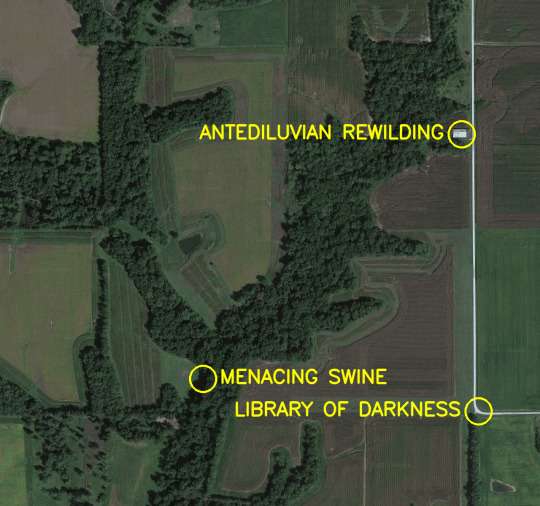
IMINT #76596 from NROL-129 (CONFIDENTIAL) 1. Antediluvian Rewilding 2. Menacing Swine 3. Library of Darkness
8 notes
·
View notes
Quote
Immortal 9 [i9] Ether TRILLIONAIRE [E.T.] Ancestor A.G. Gaston TELEPATHICALLY Say... He JEHOVAH OKCULT BUSINESS [JOB] WITNESS [JW] this GOLDEN 1968 [VI]... 9 Ether Gen X INDUSTRIAL TITAN of Lost Antediluvian [L.A.] MU Amurika [MA = ATLANTIS] in 2022 [VI]
MU:13

our so called “dead” ancestors are COMMUNICATING TELEPATHICALLY 2 US DIVINELY CHOSEN [D.C.] 144,000
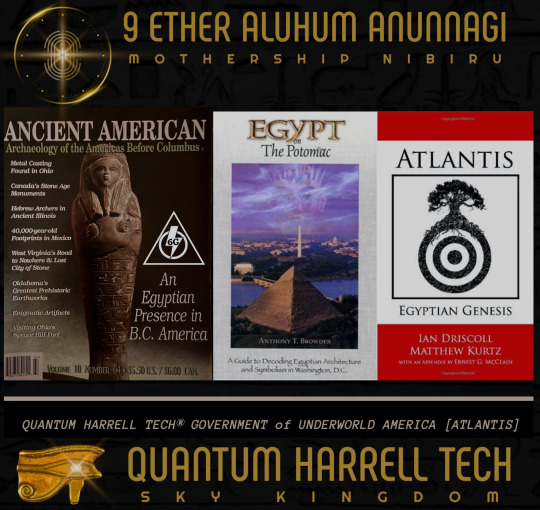
WE ANU 9 ETHER INDUSTRIAL HIGH TECH AGE OF SIRIUS QUANTUM INTEL [QI] CLOUD COMPUTING in 2023
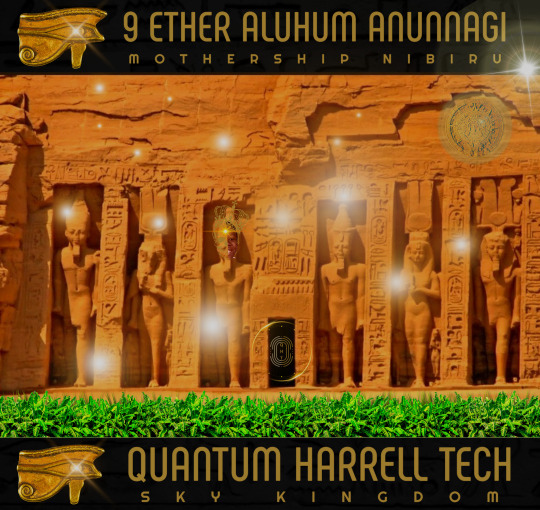
WE ANCIENT INDUSTRIAL [A.I.] QUANTUM HARRELL TECH [QHT] TITANS
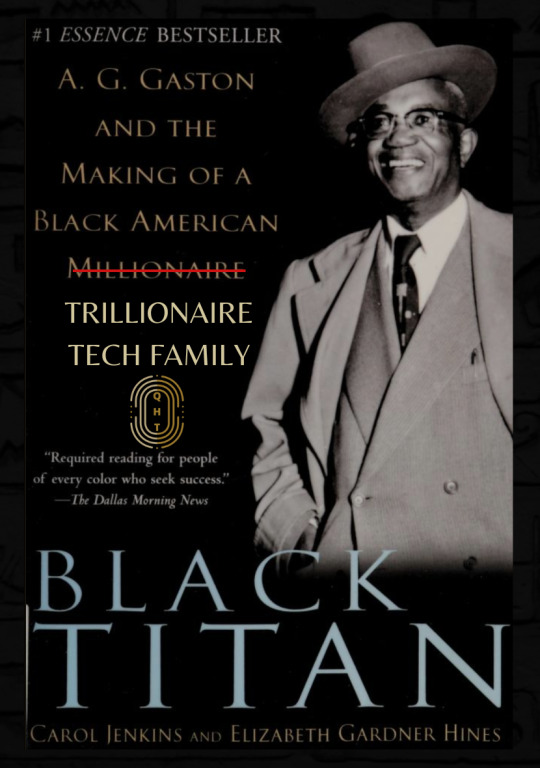
WE 144,000 ORIGINAL 9 ETHER TITAN [E.T.] FAMILIES of Antediluvian MU Amurika [MA = ATLANTIS]
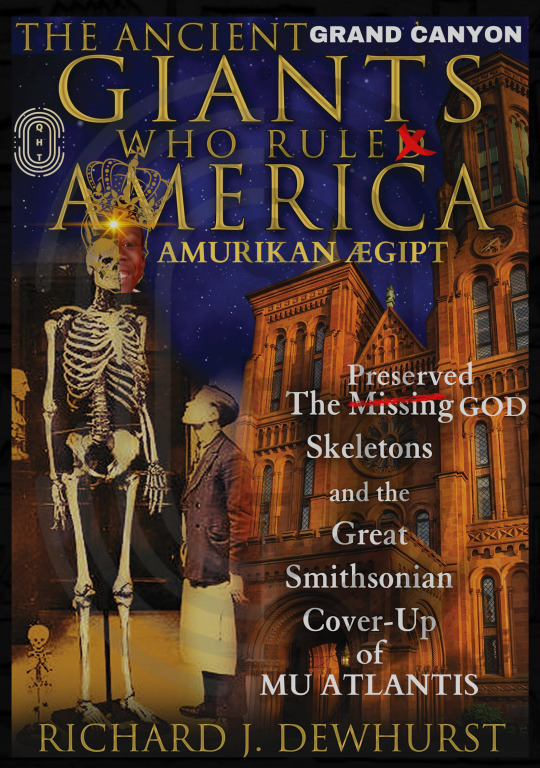
EYE FOUND MUUR OF OUR ANCIENT GRAND CANYON LAND RECORDS IN SUBTERRANEAN MU AMURIKA [MA = ATLANTIS]

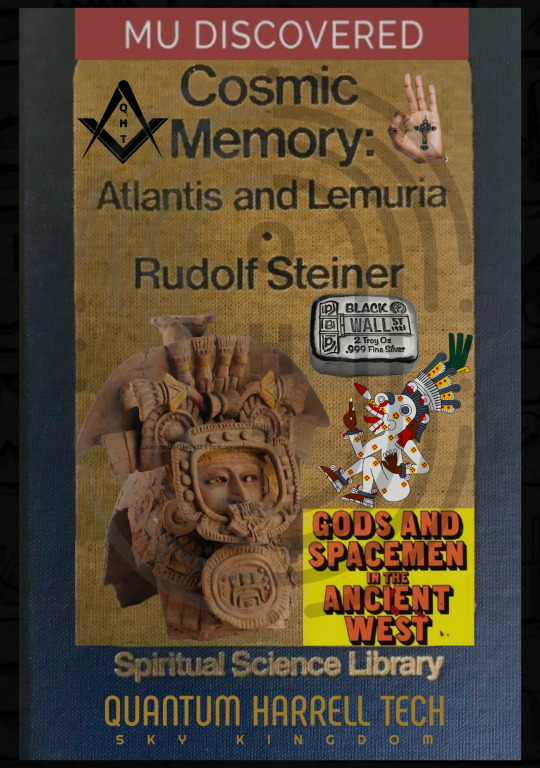



MU:13
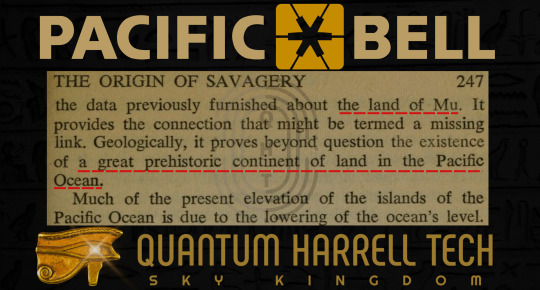


YOU DON’T BELIEVE ME [GOD]
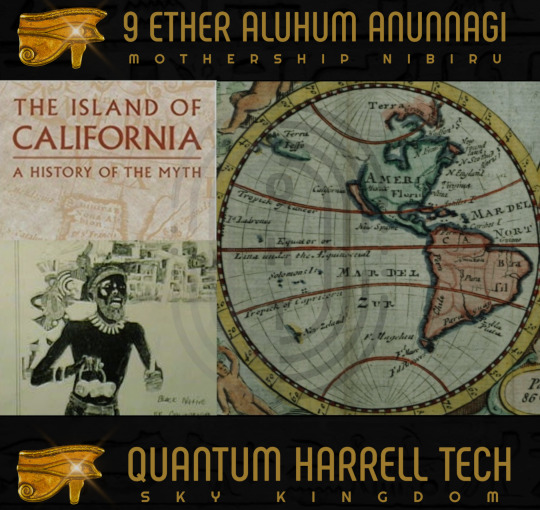
WE NOT A MYTH

WE IN THE LIBRARY OF CONGRESS from ALEXANDRIA [CA]

EYE SOVEREIGN GOLDEN BLACK 9 ETHER SUN LAND CHIEFTAIN w/ANU GOLDEN BLACK 9 ETHER SUN ISLAND QUEEN CALAFIA

WE ANU GOLDEN BLACK SUN PEOPLES OF SUBTERRANEAN EARTH QUEEN CALAFIA
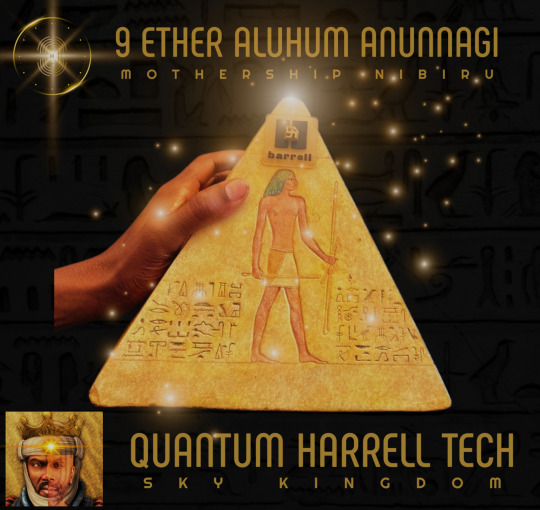
1 note
·
View note
Text
july 1713
(bisexual carlisle au)
The halls of volterra were filled with a hauntingly beautiful sound coming from Carlisle's useless bedchamber. Aro had given him a place to study after he had constantly kept retreating to the library ever so often. Carlisle had been studying music after being intrigued by the way it made him feel. The sounds reminded him of his sacred childhood, the choir singing rejoicefully as his father preached at the alter - it was mostly a blur to him but he grasped onto the blissful memories of his human life as much as he could
He had decided to learn to play the violin first, start small and simple. As he played he lost himself, closing his eyes listening to the serene sounds - antediluvian in its way
then unexpectedly, a sharp knock landed on his door making him gasp lightly and stop his fiddle
'Don't stop on my account' a young but rough voice with a twinge of a hidden French accent rang as a smile pulled against his stubble covered face
'I was just admiring the way you play, It sounds quite ...beautiful'
'Oh?' Carlisle laughed nervously 'well I'm glad you liked it,' the dark-haired man looked at him standing with poise and grace lifting his powdered eyes
'I'm Carlisle Cullen by the way'
'Oh your Carlisle? Hmm Aro has mentioned you many times, I can see why now'. He chuckled 'I'm Louis'
'Its lovely to meet you, what brings you to Volterra?' Carlisle had never seen this man before - he knew Aro had kept many of the other visitors away from the main counterparts of the ancient building but had never heard of a 'Louis' until now
'Exactly what I'm looking at right now, the gifted & beautiful people that recite in this wondrous coven' he smirked confidently and flamboyantly as Carlisle gently bit the left side of his lip
'Gifted?'
'Well you do play rather well'
Carlisle looked down content at the compliment whilst Louis paid attention to a small book resting on a dusty foot rest just behind Carlisle. Curiosity struck the man as he picked up the book and began flipping through the timeless pages
'Your reading Shakespeare?'
'Yes midsummer's night dream! Its one of my most favourable of all his works'
Louis gazed into his inquisitive eyes 'hm I've never read it, perhaps you can read it to me sometime'
'I would love to,' Carlisle enthusiastically called but was gravely dissapointed at the realisation that he couldnt right at that moment 'But I must meet with Aro soon. He's throwing one of his masquerade ball's for his guests' you see, I'm sure your invited?' would it be wrong to betray Aro and accompany this man? would it be wrong if I wanted to learn more about him? why am I so intrigued by him? why do I have such an urge to stay and indulge in conversation? why do I feel such a way? Carlisle's thoughts clouded his mind, thick with needy and flustered emotion
'Well I was hoping maybe after I could acquire more about you, for a starter your eyes?' Louis -still confident in his gaze- searched with desperation
'I was wondering when you were going to ask that, with many others I encounter it is the first thing they propose' he scoffed
Carlisle glanced at the phantasmal little clock perched upon his desk
'I'm so sorry, I'm expected maybe we coul-'
Louis walked leisurely towards him taking vast, slow steps and stopping right near the nape of his kneck, covered with a frilled lace collar. Carlisle sighed
'I just hope Aro doesn't keep you for too long, I would love to hear more about you and listen to you play more tonight Carlisle Cullen, it was an honour meeting you my dear! he curtseyed and whisped out of the room in the blink of an eye
Carlisle shuddered and stood with nothing but his confused muddled thoughts. He had no idea why a warm fuzzy feeling was spread around him but it instantly reminded him of the muse he felt whilst playing his violin safe
#twilight#carlisle cullen#aro volturi#fanfic#im such a history/literature nerd#let carlisle be bi im begging you#the bisexual panic this man has#the anglican angst he possesses#made up au#bisexual carlisle#the twilight saga#bella swan#esme cullen#edward cullen#rosalie hale#twilight shitpost#ive been thinking about this for weeks#writing#twilight series#the cullens
16 notes
·
View notes
Text
The Young Owl, Episode 2, Part 6
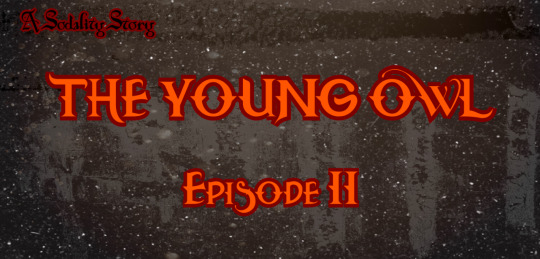
“I have to say,” the girl’s father started, seating himself at a chair by the fireplace. “I never thought I’d have a bird in my home.”
“We’re not a welcome sight for most,” Owl acknowledged, seating herself across from him. “And we’re aware of it.”
“Still,” the man sighed. “If you can help Feli…”
“I will have to ask you some questions about her,” Owl started. “Pertaining to her recent history and health.”
“Anything in reason,” the man nodded. Owl stared at him for a brief moment, taking him in. He was middle-aged, with flakes of white just beginning to speckle his black beard. He was comfortably dressed, and his wealth as a tradesman was obvious. She wondered what it was he considered to be ‘in reason.’
“Has she ever been given to fainting before?”
“Never.”
“Has her diet changed recently?”
“I can’t imagine how it would’ve,” the man shrugged.
“Has she spent any time away from home recently?”
“A few nights here and there with friends of hers,” the man answered. “Farmer girls, who have been in need of help with chores and the like.”
“Why?”
“Because their mothers are old and they lack siblings to help,” he said. “We had a plague pass through when I was a boy, and it took most of a generation. We’re only just moving past it.”
“Who are these friends? Where do they live?”
The man listed names, gave directions.
“Did your daughter come home late at all recently?” She inquired. “Later than expected?”
“Once, yes,” the man nodded. “She said she had slid down a hill when she wasn’t paying attention. She can be clu
“How late was she in returning?”
“She is usually home in time for breakfast, just as the sun is rising,” the man said. “That day, she was home as we were finishing our meals.”
“Hm…” the Owl hummed. Perhaps that hill she fell down was home to some forest parasites… but that did not explain how the infestation was spreading.
“The other boy who has fainted,” she asked, “are they friends?”
“Falk?” He asked. “Aye, Falk and Feli are friends. Falk’s family are patrons of ours. Merchant folk; they buy my goods and sell them off to traders.”
“So the two of them spend a lot of time together?” She asked.
The man regarded her carefully. “As two of the same age, with close families, often do,” he declared.
“Would they share a bed?” the Owl asked plainly.
“You’ll not insinuate against my daughter like that, bird,” he growled. “She’s upright, she is, and so is Falk. They’d not bed unless they were promised, and they aren’t.”
“Plenty of people share beds even if not in, er, that way,” the Owl pointed out.
“Kin do,” the man stated, “and travelers on a road. Not my Feli, not with Falk.”
The Owl simply nodded quietly. Perhaps a Crow could navigate this better, but she was running out of patience as it was.
“I’ll confer with my… companion,” Owl said. She had to search for a word for Sparrow. She certainly wasn’t a colleague, assistant felt too condescending, and partner was too intimate. “She’ll hopefully have some information by now that will shed light on Falk’s own condition.”
The man nodded. “Take care of those children, bird, and you’ll have a sack of coin for it.”
She nodded once and stood, ready to leave. Quietly, she wondered to herself why he said that. He had already agreed to pay for her services. With a resigned sigh, she left the house realizing that the man was reminding her of her reward in exchange for remaining focused—he was under the impression that she needed coins jingled in front of her to keep her work ethic up.
Is it so difficult to believe I care about my work? She wondered. She thought of her argument with Sparrow about the matter earlier. Then she remembered, once more, the vial at her hip.
Why must everything become so complicated now, of all times… she wondered as she made her way.
The Owl found her way to Falk’s home, and was relieved to see Sparrow waiting outside. She had no desire to deal with Falk’s family, even to retrieve Sparrow.
“Have you learned anything?” the Owl asked.
“Not much,” Sparrow shrugged, not looking at the Owl.
“Well,” Owl prompted, “what have you learned?”
Sparrow shrugged. “Nothing important.”
“Sparrow,” the Owl said dryly. “Not an hour ago you were chastising me for being reluctant to breach my vows and render aid without fair compensation. Now you’re skirting around my question and impeding my work.”
“I’m not skirting around your damn question, I’m answering it,” Sparrow spat. “They couldn’t tell me anything useful.”
“You’re not a Sodalist, how would you know what is useful?” Owl questioned. “Listen—did they mention the boy spending time away from home lately?”
“No,” Sparrow said.
“What about spending time with the girl, Feli?”
“Nothing of the sort.”
Owl stared at Sparrow.
“Did you even speak with them?” Owl asked.
Sparrow didn’t answer.
“Sparrow…” Owl scratched her mask.
“They said they knew I was with you,” Sparrow said. “And that they knew you’d taken Falk’s blood and weren’t going to let you take any more of it.”
The Owl pinched down on the bridge of her mask’s beak, steadying her breath. Much as she wished to deny it at times, she was young—her experience was limited, and this kind of obstinacy hadn’t become routine for her. She wished she was in some antediluvian depths plundering old lore. Or that she was exploring a forsaken city of a lost people. Or even just in a dusty library with unknowable wisdom reposing, untapped and unappreciated.
Instead she was stuck with Crow’s work.
“Have you heard any news of other cases?” Owl asked.
“None,” Sparrow said. “Just these two. For now.”
“Unless the infestation spreads,” Owl sighed. “Which it may yet.”
“Still new clue what kind of nasties are digging into their ears,” Sparrow pointed out. “Or if they’re killers.”
“So we have no diagnosis, no prognosis, and no prescription,” Owl paced. “I hate Crow’s work.”
“Where do we go from here?” Sparrow asked, her tone somber. Owl looked at her. Her face was shaded with defeat. Owl stared at her, trying to think of how to restore some of her light.
“We can inquire with other villagers,” Owl shrugged. “They’ll have less detailed information, but we may be able to piece something together as to how these two were infected. That will help us arrive at a better conception of what they’re infected with.”
“Even if we can find a place they were probably bugged up,” Sparrow said, “we can go there and see if we can’t find some nasties in the wild that I can identify.”
“There is one possible location,” Owl said. “Feli’s father said she apparently slipped down a hill recently on her way back from a friend’s house.”
“Can’t imagine a slip would be enough time for the critters I’m thinking of to sneak into an ear,” Sparrow said.
“Unless it wasn’t just a slip,” Owl said.
“What do you mean?”
“I have a feeling these two have not been entirely forthright with their parents,” Owl conveyed. “I think they’ve been spending time together, in private.”
“Woodland dalliances, huh?” Sparrow smirked. Owl was relieved to see her smile again. “So you think these two are spending their hours on the woodland floor whispering sweet nothings while little buggers make a home of their ears.”
“It’s possible,” Owl nodded. “And our best line of investigation for now. If we can confirm Falk was also by a hill—the same hill Feli slipped down—then we can identify that hill and investigate it.”
“Sounds sound to me,” Sparrow nodded. “Shall we split up and ask around?”
“No,” Owl shook her head. “People already know we’re a… that you are working with me. There’s no benefit to splitting up, and besides, I want to make sure I can keep an ear out for any useful information that you wouldn’t pick up on.”
“Because I’m slow?” Sparrow quipped.
“Certainly not,” Owl answered. “You’re just a Lodger.”
“What’s that meant to mean?” Sparrow demanded.
Sparrow could not see the playful smile on the Owl’s face behind her mask, but she could hear the slight giggle.
“The other guilds have plenty to say about us,” the Owl said as she turned to go, “but never seem to realize we have things to say about them.”
“Bird gossip,” Sparrow guffawed as she followed. “Never thought I’d hear of such a thing.”
6 notes
·
View notes